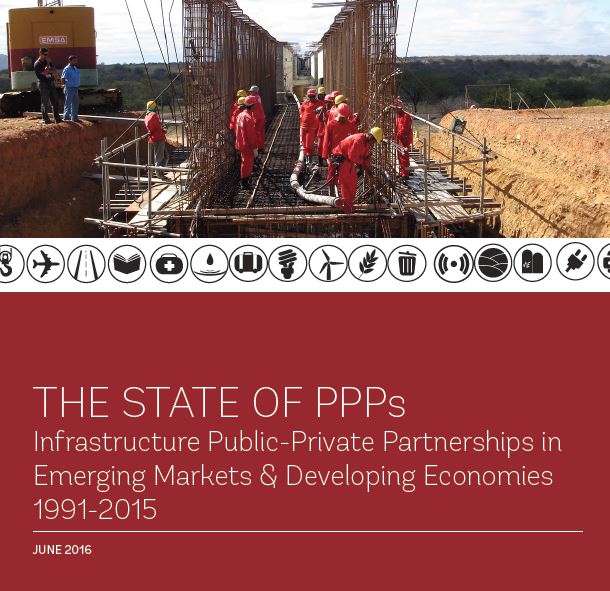961 results found
Featured results



More results
This report provides an assessment of the state of regulatory governance in infrastructure industries in Brazil and to suggest possible indicators for future monitoring, while also providing a ranking among Brazillian regulators.

This report looks into developing policies for Angola in the energy, water, transport and communcations sector in order to enhance the private participation in the rebuilding and development in the countries infrastructure.

This paper examines the evolution of infrastructure and the impact of infrastructure investment and public finance shocks on key development indicators and growth performance in the context of middle income countries.

The ITF Transport Outlook provides an overview of recent trends and near-term prospects for the transport sector at a global level as well as long-term prospects for transport demand to 2050.

This report assesses infrastructure PPP investments in an expanded list of Fragile and Conflict Affected States (EFCS2), as well as the PPP regulatory frameworks during the 2012-2016 period.

This report uses data from the PPI Database to analyze broad trends of PPP investment in infrastructure from 1991 to 2015.


The 3PA consists of three pillars each of which represents a key dimension of quality project assessment providing a clear framework within which project proposals can be evaluated.

This paper summarizes and expands the state-of-the-art understanding of the urbanization, development, environment, and inequality nexus.


This paper proposes the adoption of advanced asset management practices that could help water and wastewater utility operators to improve their competitiveness and become more sustainable in operational terms.

This article breaks down the blockers to InfraTech adoption and why they occur. Use this article to deepen your understanding of the repercussions of problems like poorly defined value cases and disparate interests among parties across the timeline.
Recently, the GI Hub coordinated a discussion of asset recycling as part of a presentation to fellows of the ASEAN Sustainable Leadership in Infrastructure Program.

The number of primary private infrastructure transactions increased by 18% in 2022, the strongest annual growth since 2017, largely driven by strong investor appetite for projects supporting the clean energy transition. However, growth was mostly being driven by high-income countries in North America and Western Europe, with private investment activity in middle- and low-income countries seeing a lot less momentum with volumes on par with pre-COVID levels.



Private investment in infrastructure projects in primary markets has been stagnant for seven years running


This publication is the result of a scoping study initiated by the Asian Development Bank to better understand the issues associated with the water-food-energy nexus in Asia and the Pacific.

The third global report, 2019 Global Infrastructure Investor Survey, also revealed that investor appetite for emerging markets infrastructure is levelling. Respondents identified recent trends in monetary policy normalisation and greater emerging market foreign exchange rate risk as factors that may be driving investors away.
Population growth and economic development, aggravated by climate change, will increase pressure on energy and water resources. Integrated planning can make the most of these two essential and scarce resources. Thirsty Energy, a World Bank initiative, helps countries address these issues and ensure sustainable development of both resources. This note focuses on the water needs of the power sector and particularly answers the following questions: Why is this issue important? Do power plants need all that much water? What about other types of plants? What are the challenges? and, What are our options?

Find out how the Inter-American Development Bank’s latest flagship report offers a sound methodology on ensuring infrastructure development fundamentally transforms people’s lives of people.

This tool presented here in an Excel format was designed to evaluate the fulfillment of good corporate governance practices in primarily state owned water and sanitation companies in the region.


The Toolkit is a reference guide for public authorities in developing countries for the development of PPP programs in the highways sector, particularly in assisting in PPP policy development, project preparation and the sourcing and more.




 Infrastructure Technology (InfraTech)
Infrastructure Technology (InfraTech)




